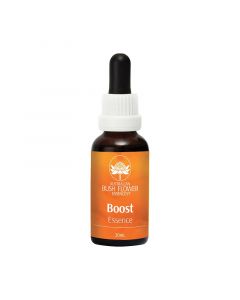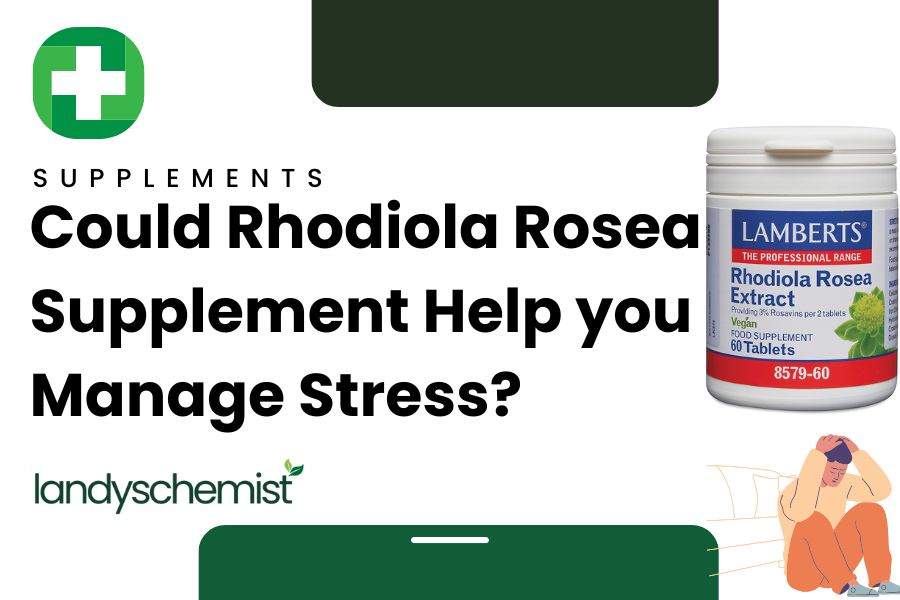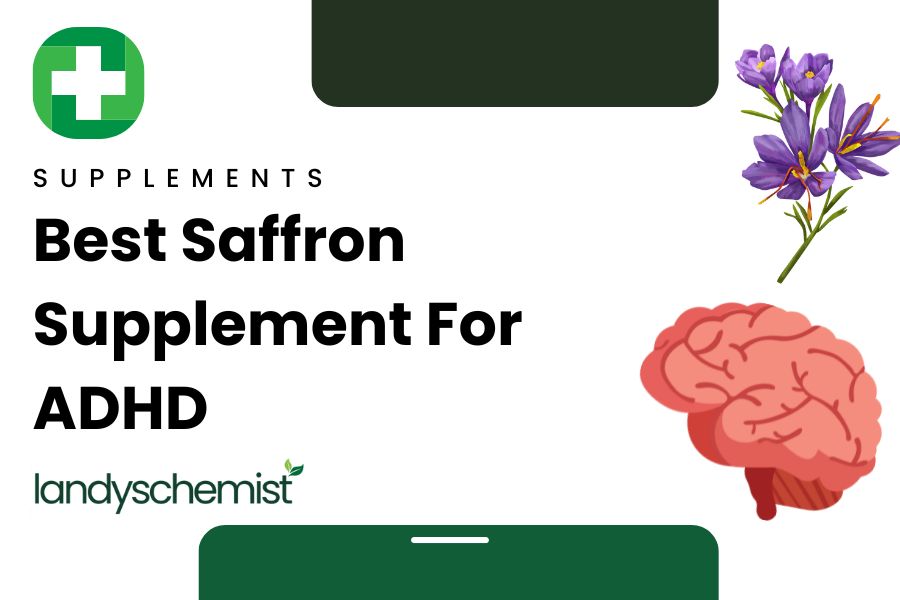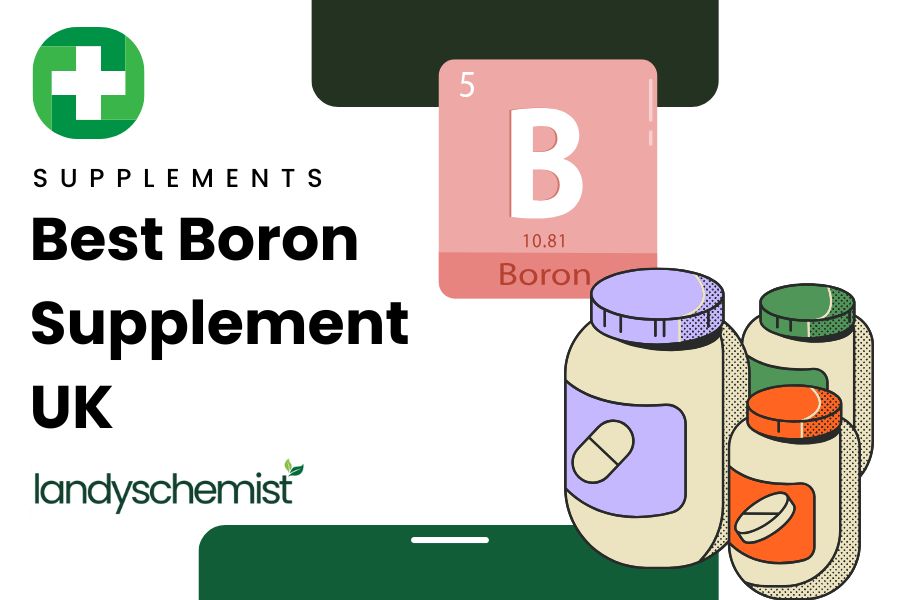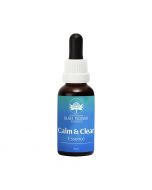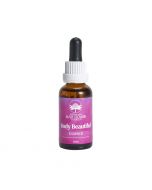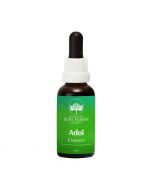
The Ultimate Guide to Flower Remedies: Everything You Need to Know
Flower Remedies have been used for centuries to support emotional well-being and restore balance. Unlike herbal supplements, which contain active plant compounds that act on the body, Flower Remedies work on a more subtle level. They are thought to influence emotions through vibrational energy, promoting harmony and resilience in times of stress and are a popular choice for those seeking natural support for their emotional health.
This guide explores how Flower Remedies work, their history, their benefits, and how to choose the right one for your needs. Whether you are new to Flower Remedies or looking to deepen your understanding, this article will provide a comprehensive overview of their uses and effectiveness.
What Are Flower Remedies?
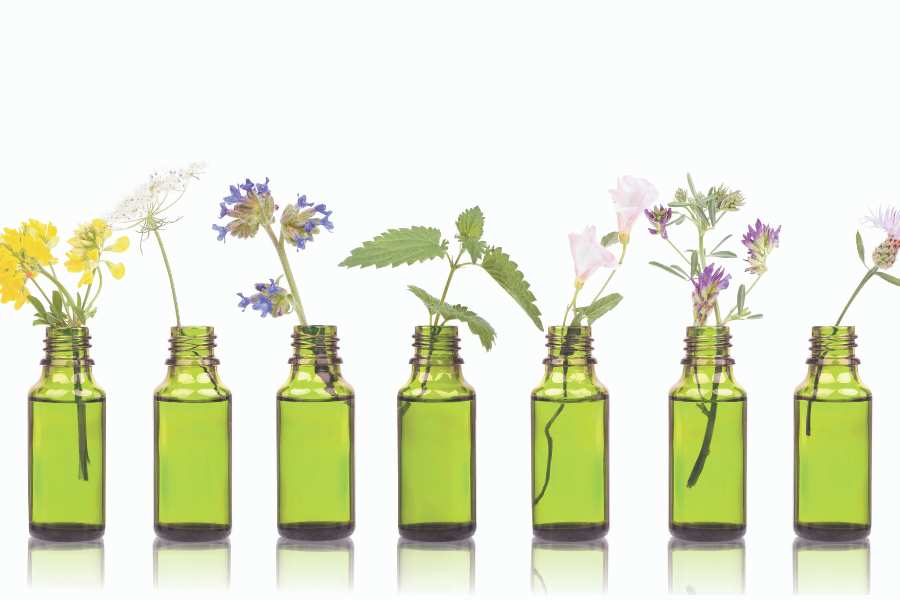
Flower Remedies are natural extracts made from flowers. They are created by soaking fresh blossoms in water and allowing sunlight or heat to release their natural properties into the liquid. This extract is then preserved with alcohol or glycerin to maintain its quality over time.
The idea behind Flower Remedies is that emotional imbalances can affect overall well-being. By supporting emotions such as fear, anxiety, or uncertainty, these remedies aim to bring balance to the mind and body. Many users find them beneficial for coping with stress and emotional challenges. Some studies suggest that they may work by fostering self-awareness and encouraging emotional processing, which can contribute to overall well-being.
The History of Flower Remedies
The practice of using flowers for healing has existed for centuries. Many cultures have valued their ability to support emotional and spiritual well-being.
Ancient Egyptians, Indigenous healers, and practitioners of Traditional Chinese Medicine recognised that flowers could influence mood and mental states. They were often infused in oils, brewed into teas, or applied in rituals for their soothing and balancing properties.
However, the modern system of Flower Remedies was pioneered by Dr Edward Bach, a British physician and homeopath, in the early 20th century. He was dissatisfied with conventional medicine’s focus on symptoms rather than root causes. Bach believed that emotional imbalances could contribute to physical illness and that restoring emotional harmony was essential for overall health.
Bach identified 38 distinct flowers, each linked to a particular emotional state. His most well-known formulation, Rescue Remedy, is still widely used today for managing stress and emotional distress. His pioneering work set the foundation for modern Flower Remedies, inspiring practitioners worldwide to create their own blends.
Over time, Flower Remedies have evolved, with new formulations and combinations designed to address different emotional and mental well-being concerns. Despite medical advancements, these natural remedies remain valued for their gentle, supportive approach to emotional health.
How Do Flower Remedies Work?
Flower Remedies are based on the idea that flowers possess natural energetic properties that can influence human emotions. When taken as drops under the tongue or diluted in water, they are thought to encourage the body’s own ability to regain balance.
Unlike herbal supplements or pharmaceuticals, which exert biochemical effects, Flower Remedies do not contain active plant compounds. Their effectiveness is believed to stem from vibrational energy, working to harmonise emotional disturbances. Many consider them a form of energy medicine, like acupuncture or homeopathy. By focusing on emotions and selecting a remedy that aligns with a specific challenge, individuals may develop healthier coping mechanisms.
Scientific studies suggest that certain Bach Flower Remedies, when applied in diluted forms, may help reduce anxiety, depression, fear, and pain. Additionally, animal research has shown that Bach Flower Rescue Remedy may help regulate glycemia, triglycerides, and HDL-cholesterol, indicating potential benefits for cardiovascular health. Pomegranate flower extract has been found to reduce oxidative stress and improve vascular relaxation in hyperglycemic conditions, further supporting cardiovascular function. Chrysanthemum flowers, rich in phenolic compounds, have demonstrated strong antioxidant, antimicrobial, anti-inflammatory, and anticancer properties, highlighting their potential to promote overall well-being.
The Benefits of Flower Remedies
Flower Remedies are commonly used to support emotional and mental well-being. They are believed to help with a range of concerns, including stress management, emotional balance, and improved focus.
One of their key benefits is stabilising mood and reducing emotional distress. They may ease feelings of sadness, fear, and irritability, encouraging a sense of calm and stability.
Some remedies, such as Rescue Remedy, are well known for their calming effects and are often taken during high-pressure situations to promote a sense of control.
Certain remedies support mental clarity by improving focus and concentration. White Chestnut, for example, is often used to quiet an overactive mind.
For those who struggle with sleep, remedies such as White Chestnut and Agrimony encourage relaxation and promote better rest.
By supporting emotional processing, Flower Remedies may help individuals develop resilience to stress. They encourage self-awareness and reflection, contributing to long-term emotional well-being.
Types of Flower Remedies
- Flower Remedies are available in different forms, each designed to support specific emotional needs. Some people choose single flower remedies, while others benefit from blends that combine multiple essences. The type of preservative used can also influence personal preference and suitability.
- Single Flower Remedies are used to support specific emotional states. Each essence corresponds to a particular feeling, such as Mimulus for fear, Larch for confidence, or White Chestnut for an overactive mind. These remedies offer a personalised approach, addressing individual emotional needs.
- Blended Formulas contain multiple flower essences, working together to provide balanced emotional support. These blends are created to help with broader concerns such as stress relief, focus, or emotional resilience.
Flower Remedies may be preserved with alcohol or glycerin. Alcohol is traditionally used to maintain potency, but glycerin-based alternatives are available for those who prefer an alcohol-free option without affecting effectiveness.
How to Choose the Right Flower Remedy for You
Choosing the right Flower Remedy starts with understanding your emotions and selecting the essence that best supports your needs. Each remedy is designed to help with a specific emotional state. For example, Scleranthus is used for indecision, while Star of Bethlehem provides comfort during grief.
Popular Flower Remedies include Rescue Remedy for stress relief, Mimulus for overcoming fear, and Larch for boosting confidence. These well-known essences are widely used for managing common emotional challenges.
For those who need support in multiple areas, combining remedies can provide a more complete solution. Up to seven different remedies can be used together, allowing for a personalised blend that matches an individual's emotional needs. This customised approach ensures that each person receives targeted support for their unique situation.
How to Use Flower Remedies
Flower Remedies are simple to use and can be part of a daily routine. The most common method is placing a few drops under the tongue for quick absorption. Alternatively, they can be diluted in a glass of water, tea, or another beverage and consumed gradually. Some remedies are also suitable for external use and can be gently applied to pulse points or incorporated into skincare products.
How often Flower Remedies are used depends on individual needs. Some people take them several times a day, especially during periods of increased stress or emotional difficulty. A general guideline is to take 2-4 drops up to four times daily, though this can be adjusted based on personal preference and response.
Flower Remedies are widely regarded as safe for most people, including children. Some formulations contain alcohol as a preservative, but alcohol-free options are available. Pregnant or breastfeeding women should seek advice from a healthcare professional before use. While generally well tolerated, individuals taking medication should consult a doctor to ensure compatibility.
Final thoughts
Flower Remedies provide a gentle, natural way to support emotional well-being. Based on holistic principles, they remain a popular choice for those looking to enhance balance and resilience in daily life. Many people find them beneficial for managing stress and emotional challenges. With consistent use, Flower Remedies can be a valuable addition to a well-being routine.
References:
- https://pubmed.ncbi.nlm.nih.gov/25146077/
- https://journals.lww.com/hnpjournal/abstract/2022/11000/bach_flower_remedies_as_complementary_therapies_in.10.aspx
- https://pubmed.ncbi.nlm.nih.gov/35722136/
- https://pubmed.ncbi.nlm.nih.gov/37860517/
Find Your Perfect Flower Remedy - A Self-Assessment Quiz for Emotional Well-Being
Flower remedies help restore emotional balance. Answer each question and write down your score for each response. At the end, add up your total to discover the right remedy for you.
- How do you handle stress?
1️⃣ I feel completely overwhelmed and struggle to cope
2️⃣ I get nervous and flustered but try to keep going
3️⃣ I shut down mentally and feel spaced out
4️⃣ I become stuck in negative thinking patterns
5️⃣ I overthink and worry about things that may never happen
- How do you feel about your confidence levels?
1️⃣ I feel powerless and unable to take control of my life
2️⃣ I often feel inferior to others and hold back
3️⃣ I get distracted easily and struggle to stay on track
4️⃣ I regret past mistakes and can’t seem to move forward
5️⃣ I second-guess myself and feel held back by fear
- What describes your emotional state most often?
1️⃣ Overwhelmed, anxious, or exhausted
2️⃣ Self-doubting, lacking motivation, or hesitant
3️⃣ Foggy-minded, unfocused, or forgetful
4️⃣ Nostalgic, regretful, or emotionally stuck
5️⃣ Fearful, nervous, or avoiding challenges
- Which statement resonates with you the most?
1️⃣ "I feel like I have too much on my plate and can’t manage it all"
2️⃣ "I want to believe in myself more but struggle with self-doubt"
3️⃣ "I feel disconnected and find it hard to focus"
4️⃣ "I often dwell on the past and struggle to move on"
5️⃣ "I let my fears stop me from doing things I want to do"
- What would you like more of in your life?
1️⃣ Inner peace and relaxation
2️⃣ Confidence and courage to take action
3️⃣ Focus and mental clarity
4️⃣ Emotional release and healing
5️⃣ Strength to overcome fears
Now, Add Up Your Score:
- 5-9 points → Bach Rescue Remedy & Elm
You may feel overwhelmed or emotionally drained. Rescue Remedy brings calm, while Elm restores confidence when feeling overburdened.
- 10-14 points → Larch & Gentian
You may struggle with self-confidence and motivation. Larch boosts self-belief, while Gentian supports perseverance when facing setbacks.
- 15-19 points → Clematis & Hornbeam
You may feel mentally fatigued or unfocused. Clematis enhances concentration, while Hornbeam helps overcome procrastination and mental sluggishness.
- 20-24 points → Honeysuckle & Walnut
You may be stuck in the past and struggle with change. Honeysuckle helps let go of regrets, while Walnut supports emotional adjustment during transitions.
- 25+ points → Mimulus & Aspen
You may have fears that hold you back. Mimulus helps with known fears, while Aspen provides comfort for vague, unexplainable anxieties.
Common Flower Remedies Comparison Table
|
Flower Remedy |
Emotional State |
Key Benefits |
|
Bach Rescue Remedy |
Stress, anxiety, feeling overwhelmed |
Promotes calm, reduces stress, restores balance |
|
Elm |
Feeling overburdened, lacking confidence |
Restores confidence, helps manage pressure |
|
Larch |
Self-doubt, lack of motivation |
Boosts self-belief, encourages action |
|
Gentian |
Discouragement after setbacks |
Encourages perseverance, strengthens resilience |
|
Clematis |
Mental fog, daydreaming, lack of focus |
Enhances focus, increases presence |
|
Hornbeam |
Fatigue, procrastination, mental sluggishness |
Restores mental energy, helps overcome procrastination |
|
Honeysuckle |
Living in the past, nostalgia, regret |
Supports emotional release, helps move forward |
|
Walnut |
Difficulty adjusting to change, sensitivity |
Aids transition, provides emotional stability |
|
Mimulus |
Fear of known things, shyness, nervousness |
Reduces fears, builds inner courage |
|
Aspen |
Fear of unknown things, vague anxieties |
Eases vague fears, promotes inner security |
|
Agrimony |
Hiding worries behind a cheerful face, inner tension |
Relieves hidden stress, promotes emotional honesty |
|
Beech |
Intolerance, overly critical attitude |
Encourages tolerance, reduces judgemental tendencies |
|
Centaury |
Difficulty saying no, people-pleasing |
Strengthens willpower, encourages independence |
|
Cherry Plum |
Fear of losing control, emotional outbursts |
Brings emotional stability, reduces impulsive reactions |
|
Chestnut Bud |
Repeating mistakes, lack of learning from experience |
Improves awareness, helps break negative patterns |
|
Chicory |
Overprotectiveness, possessiveness, controlling behaviour |
Promotes healthy emotional balance, reduces clinginess |
|
Crab Apple |
Low self-esteem, feeling unclean or impure |
Encourages self-acceptance, supports emotional cleansing |
|
Gorse |
Hopelessness, loss of faith in recovery |
Restores optimism, reignites inner hope |
|
Heather |
Self-centredness, excessive talkativeness |
Encourages empathy, reduces self-absorption |
|
Holly |
Jealousy, envy, anger, strong negative emotions |
Fosters love and forgiveness, neutralises anger |

